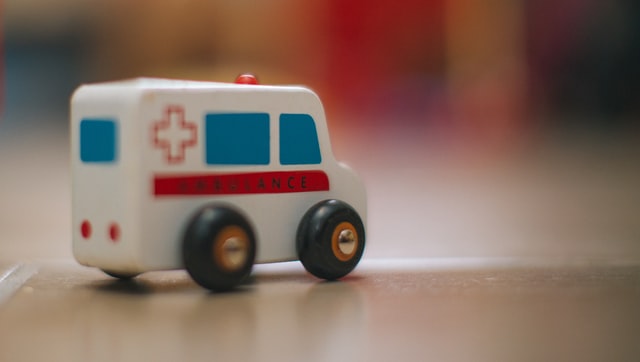Anyone with an adventurous bone in their body loves JRR Tolkien’s Lord of the Rings trilogy. In it, Tolkien wrote one of the most well-quoted lines in literature:
“Not all those who wander are lost.”
It’s a great line from a wonderful adventure, but anyone who has read the book will also know that the party of hobbits, elves, wizards and men do get lost — more than a few times.
That’s because the reality of adventuring is, well, challenging. Adventures almost always contain adversity. Sometimes that adversity adds to the overall experience of your travels, but sometimes it provokes a real threat to your health, wellbeing, or financial security.
So, assuming you don’t have a wizard to keep you company on your journeys, you’re going to need to do some planning. Here are a few tips for dealing with adversity on your travels.
Mental Health
Even Frodo Baggins, the famous LOTR adventurer that he was, went through his fair share of mental health struggles while he journeyed from the Shire to Mordor and back again. That’s because struggling with mental health is entirely normal — particularly when doing something stressful like embarking upon an adventure.
But unlike Frodo, you can at least manage your mental health by taking proactive steps to maintain your mental health through hardship. You should start by taking care of your physical health and ensuring that you are getting enough deep sleep. Aim to eat a healthy, balanced diet whenever possible. This will give you the energy and focus you need to manage the stress of adventuring.
You should also connect with a trusted friend during your adventures. After all, “Frodo would not have gotten far without Sam”, so you shouldn’t feel the need to try to go it alone, either. A good friend who brings positivity to your life can help you see the silver lining on a gray day and might just help you plan a better route at a critical moment.
Planning your Trip
Planning an adventure is half the fun. Don’t believe me? Well, Tolkein drew dozens of maps that detailed the landscape and terrain of all Middle-Earth. You certainly don’t need the same love he had for cartography to plan your trip effectively, but you will need to spend some serious time researching and planning your next adventure on Google Maps.
This might sound laborious, but creating a blueprint for your adventures is a great way to mitigate risk and get the insights you need to have a great time on the road.
But where should an adventure start? Well, you can start by seeing where others have journeyed first by connecting with a travel guide architect who will be ready and willing to help you get out of your front door and onto the road . . . after that, who knows where you’ll be swept off to.
Financial Wellbeing
The freedom of a good adventure is thrilling. For most folks, it’s just about the only time they get to step away from work and explore the world — and themselves — without a boss to worry about or a deadline to care for.
However, that freedom usually comes at a cost. After all, we can only hope to couch surf for so long before a stay in a hotel or hostel is required. However, you can still take care of your financial well-being while traveling by streamlining your personal accounts.
Budgeting Tips:
- Budget: without a budget, you’re effectively a boat without a rudder. You simply must have a clear idea of your expenses, income, and savings while you’re on the road.
- Stick to That Budget: you’re unlikely to find a Dragon’s hoard at the end of your adventures, and life might become tricky if you spent your last cent before heading back home. Stick to your budget to ensure you have ample money available to you at all times.
- Automatic Bill Pay: it’s easy to forget about rent and bills while you’re taking in the freedom of fresh air and adventure. But, unfortunately, your landlord won’t feel the same way. If you have any bills, set them up to be paid automatically to avoid headaches.
- Income: Depending on the length of your adventure, you might want to think about earning money while you’re on the trail. This could be easier now that remote work is possible in many industries, or you can consider finding a good old-fashioned pot washing position to fund the next leg of your journey.
Financial wellbeing isn’t spoken about enough when folks go on adventures. Remember, though they gave up a full year of his life to go on his adventures, Bilbo and Frodo Baggins were very well-to-do hobbits that had a literal trove of liquid assets beneath their floors and under their beds — the same is not true for most of us. Instead, we have to stick to a healthy budget and should consider taking a job if we’re away for a while.

Emergency
There’s nothing worse than a major emergency when you’re in the middle of a challenging adventure. You might be hiking, camping, flying, or even sleeping when an emergency hits, and you must have a plan to meet misfortune.
This might include purchasing travel insurance or setting up an accommodation safety net in case things go awry. The key, again, is to get deep into the planning process and take notes, so you know what to do when something goes wrong.
Conclusion
Adventures are “Nasty, disturbing, uncomfortable things” — and that’s why we love them. They break us out of our everyday routines and teach us something new about ourselves or the world around us. As a prospective adventurer, you can’t allow the chance of adversity to overrule your desire to go out and see the world. Instead, plan, prioritize your mental health and create a clear budget. Have a wonderful time, and “may the hair on your toes never fall out!”






